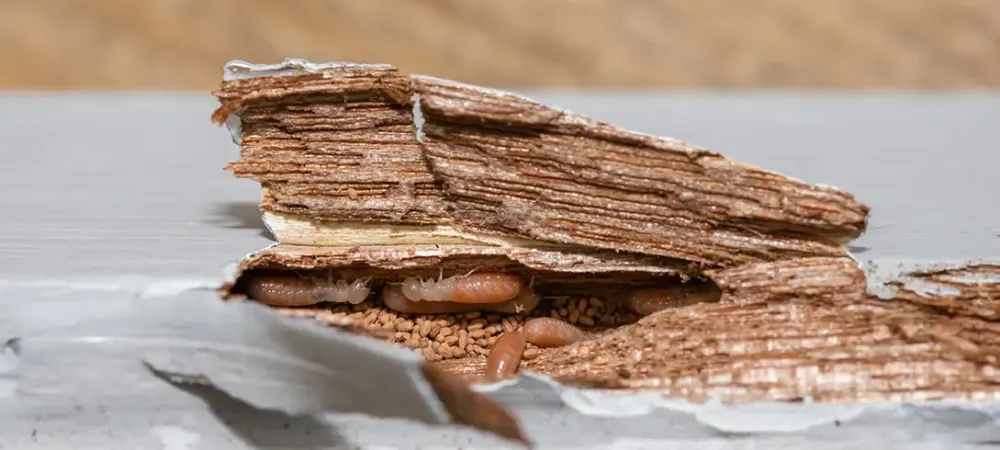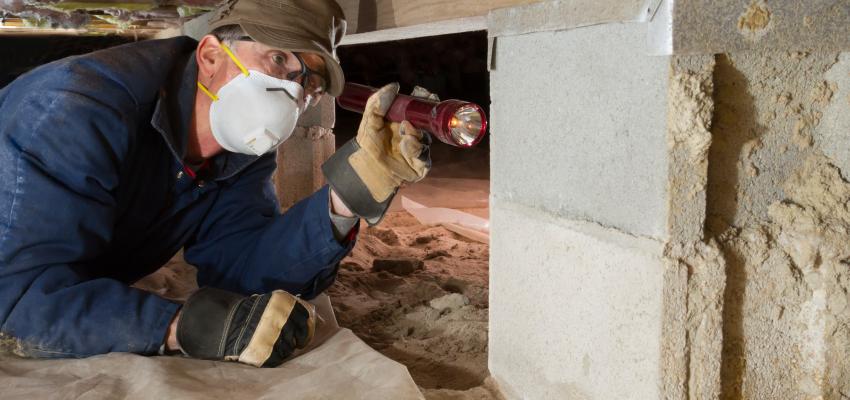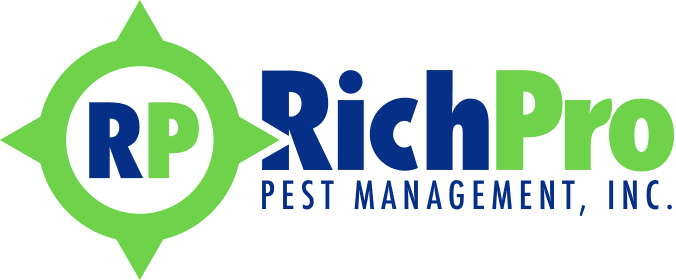Understanding WDI Reports: A Comprehensive Guide for Homeowners in Virginia

As a homeowner in Virginia, you may have encountered the term WDI report during real estate transactions, pest control discussions, or home inspections. But what exactly is a WDI report, why is it important, and when should you consider getting one? This guide will answer these questions and help you understand the role of WDI reports in safeguarding your home.
What is a WDI Report?
A Wood-Destroying Insect (WDI) Report is a document that provides a detailed assessment of your property’s condition in relation to wood-destroying insects. The report is typically prepared by a licensed pest control professional after conducting a thorough inspection of both the interior and exterior of your home.
This report serves as a critical tool in identifying active infestations, past infestations, and conditions that might encourage pests to invade. The most common wood-destroying insects in Virginia are:
- Termites: The most prevalent wood-destroying insect in Virginia, particularly the subterranean termite. These termites live in the soil and create mud tunnels to reach your home’s foundation. They can go unnoticed for long periods, causing substantial damage if left untreated.
- Carpenter Ants: Unlike termites, carpenter ants do not consume wood but create tunnels in it for nesting purposes. Though they do not typically cause as much damage as termites, large colonies of carpenter ants can still weaken the structure of a building.
- Powderpost Beetles: These beetles target hardwoods, such as oak and ash, leaving small holes as evidence of their activity. While less destructive than termites, they can still cause damage over time.
The WDI report will identify these common wood-destroying pests, note any damage they may have caused, and offer recommendations for addressing the issues.
Who Needs a WDI Report?
- Home Buyers: In Virginia, lenders often require a WDI inspection and report as part of the home-buying process. This is particularly common for VA loans, FHA loans, or USDA loans. Lenders want to ensure that the property is free from significant damage caused by wood-destroying pests that could affect the value or integrity of the home.
- Sellers: If you're selling your home in Virginia, a WDI inspection may be requested by potential buyers as a condition of the sale. Having a WDI report can help ensure a smooth transaction by demonstrating that your property is free of active infestations.
- Homeowners Refinancing Their Property: If you're refinancing your home, your lender may also require a WDI inspection. Similar to purchasing a home, the lender wants to ensure that the property is free of any damage caused by wood-destroying pests. Having a clean WDI report can help you proceed smoothly with the refinancing process, avoiding delays or complications.
- Homeowners Concerned About Pests: Even if you're not buying or selling, homeowners in Virginia should consider getting a WDI inspection if they notice signs of infestation, such as small holes in wooden structures, sawdust-like material, or the presence of flying insects near wood. Regular inspections can help prevent long-term damage to your home.
What is Included in a WDI Inspection?
A licensed pest control professional will conduct a thorough inspection of your property, which typically includes:
Interior Inspection
- The inspector will check for signs of wood-destroying insects in walls, ceilings, floors, and attic spaces.
- They'll look for damage such as tunnels, frass (sawdust-like debris), or live insects.
- Common areas of inspection include baseboards, window sills, door frames, and beams.
Exterior Inspection
- The inspector will assess the foundation, siding, and any wooden structures around the home, including decks and fences.
- They'll look for visible signs of insect activity, including mud tubes (for termites), wood damage, or evidence of nesting.
Signs of Moisture
Many wood-destroying insects are attracted to moisture. An inspector will check for areas of water damage or excess moisture that could be encouraging infestations.
Recommendations for Treatment or Repairs
If the inspection reveals evidence of infestation or damage, the report will include recommendations for treatment or repairs. This may include professional pest control treatment, repairing structural damage, or addressing moisture problems.
Report Detailing Findings
A WDI report provides a detailed account of the inspection findings. It will include:
- Whether any wood-destroying insects were found.
- The type of insect detected (e.g., termites, carpenter ants).
- The extent of the damage caused by the infestation (if any).
- Any necessary corrective actions or treatments.

Why Are WDI Reports Important for Homeowners in Virginia?
Virginia’s mild climate, particularly the warm, humid conditions in the spring and summer months, makes the state an ideal environment for wood-destroying insects, particularly subterranean termites.
Prevent Expensive Damage
Wood-destroying insects like termites can cause significant damage to the structure of your home, often before you even realize there's an issue. By getting a WDI inspection, you can catch infestations early and prevent costly repairs.
Virginia, with its humid climate, is particularly prone to termite infestations. An early inspection can save you thousands of dollars in damage.
Peace of Mind
Whether you're buying, selling, or simply maintaining your home, a WDI inspection provides peace of mind. If you're purchasing a new home in Virginia, the WDI report reassures you that the property is free from significant pest issues.
For sellers, a clean WDI report can increase buyer confidence, making the transaction smoother and faster.
Compliance with Lender Requirements
If you're obtaining a mortgage in Virginia, especially with government-backed loans like those from the VA, an up-to-date WDI report may be required. These reports are often a necessary part of the underwriting process to ensure the home meets the lender’s standards.
Long-Term Health of Your Property
Wood-destroying insects can weaken your home’s structural integrity, posing safety risks over time. Regular inspections and treatments help protect your home’s foundation and frame from severe damage that can compromise its structural stability.
Early Detection Prevents Larger Infestations
WDI inspections help identify minor pest issues before they become major ones. By catching an infestation early, you reduce the risk of it spreading and causing irreparable damage to your home. Early detection also makes treatment less costly and easier to manage.
How Much Do WDI Report Cost in Virginia?
The cost of a WDI inspection in Virginia typically ranges from $50 to $150, depending on factors such as the size of the property and the complexity of the inspection. In some real estate transactions, the seller covers this cost, but it can also be negotiated between the buyer and seller. Keep in mind that the cost of treatment and repairs for active infestations or damage may significantly increase the overall expense.
How Often Should You Get a WDI Inspection in Virginia?
While the frequency of inspections depends on your home’s location and the condition of the property, it’s generally recommended to get a WDI inspection every 1-3 years. However, if you live in an area with high termite activity or have noticed signs of pests, it’s a good idea to schedule an inspection sooner.
How to Prepare for a WDI Inspection
- Ensure Easy Access: Make sure that areas like crawl spaces, attics, and basements are easily accessible. Remove any obstructions like furniture, stored items, or debris to allow the inspector to thoroughly examine the area.
- Address Moisture Issues: If your home has any moisture problems (leaks, standing water, or high humidity), it’s a good idea to address these before the inspection. Moisture is a major attractant for termites and other wood-destroying pests.
- Provide Documentation of Past Treatments: If your home has been treated for pests in the past, make sure to have any records available. This can help the inspector understand any previous pest control efforts and provide context for the inspection.
What Happens After the WDI Report is Complete?
Once the inspection is completed, the pest control professional will provide a detailed report. If any active infestations or significant damage are discovered, you'll have several options for next steps, including:
- Treatment: The inspector may recommend specific treatment methods, such as the application of liquid termiticides, the installation of termite baiting systems, or fumigation for more severe cases.
- Repairs: If structural damage is found, you may need to undertake repairs to restore the integrity of your home. This may involve replacing wood that’s been damaged by termites or reinforcing structural elements.
- Prevention: In addition to treating current infestations, the inspector may suggest preventive measures, such as improving ventilation, reducing moisture, and installing physical barriers to keep pests out.
Who Conducts a WDI Inspection?
A WDI inspection should always be carried out by a licensed pest control professional. These experts are certified by the Virginia Department of Agriculture and Consumer Services (VDACS) and possess the training and tools needed to accurately detect wood-destroying insects. The inspection will cover all accessible parts of the property, including the foundation, basement, crawlspaces, attic, and any other wooden structures.
The inspection process may involve using specialized tools such as moisture meters and termite detection devices to help locate hidden infestations and assess the overall health of the wood in your home.
Schedule Your WDI Inspection
For homeowners in Virginia, a WDI report is a critical tool in maintaining the health and safety of your property. Whether you're buying, selling, or simply maintaining your home, scheduling a WDI inspection can prevent costly damage, ensure peace of mind, and protect the long-term value of your investment.
If you're in Virginia and need a WDI inspection or termite control treatment, contact your local, licensed pest control experts at RichPro Pest Management to help keep your home safe from wood-destroying insects. Stay ahead of potential issues and ensure that your home remains strong, healthy, and pest-free for years to come. Schedule your inspection today!
